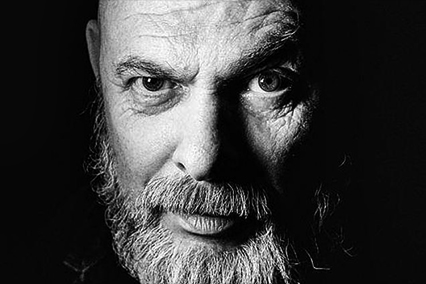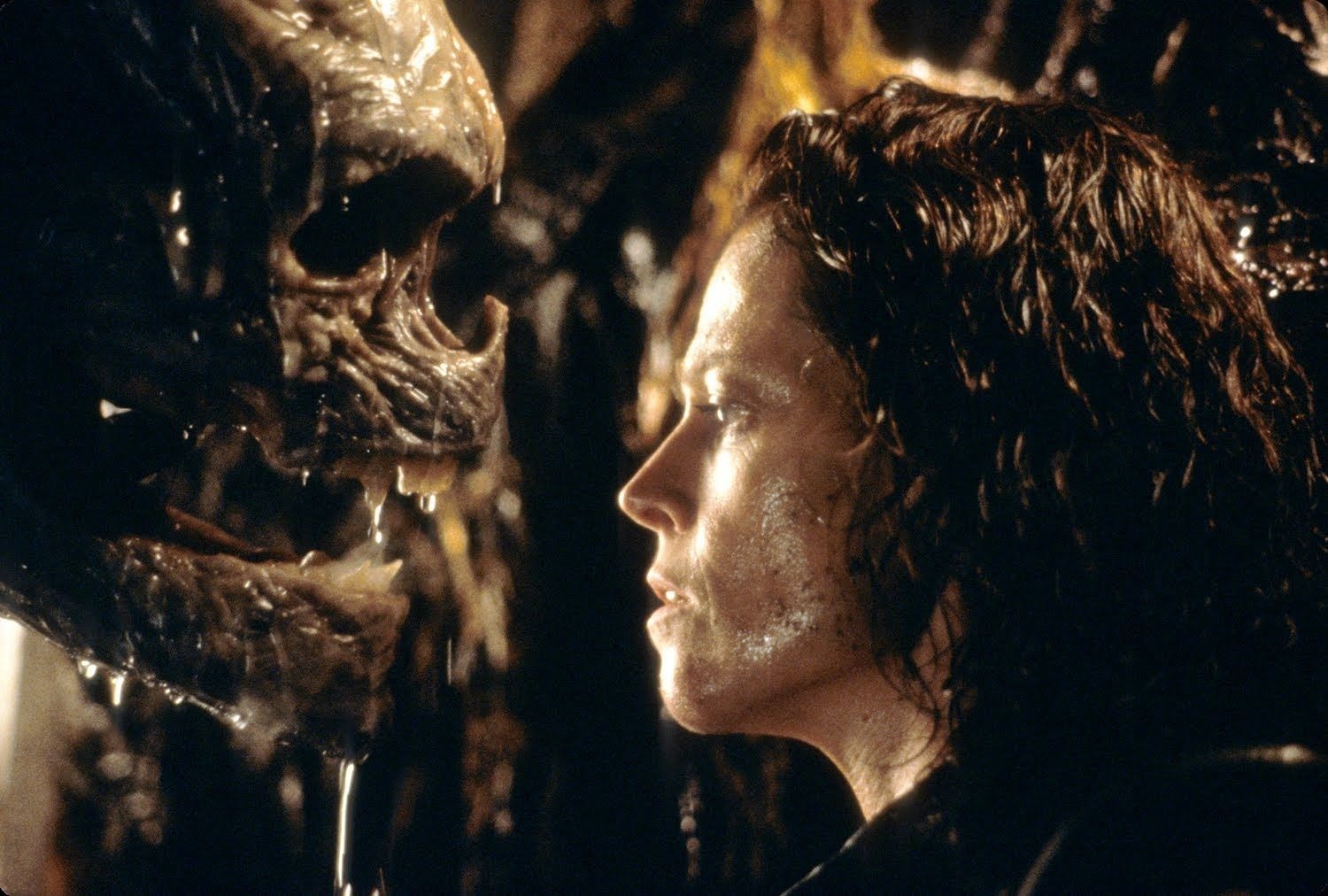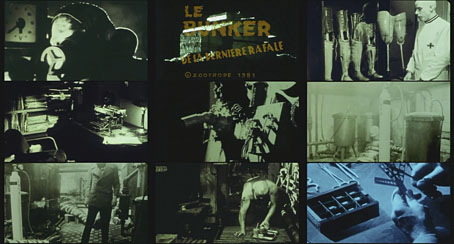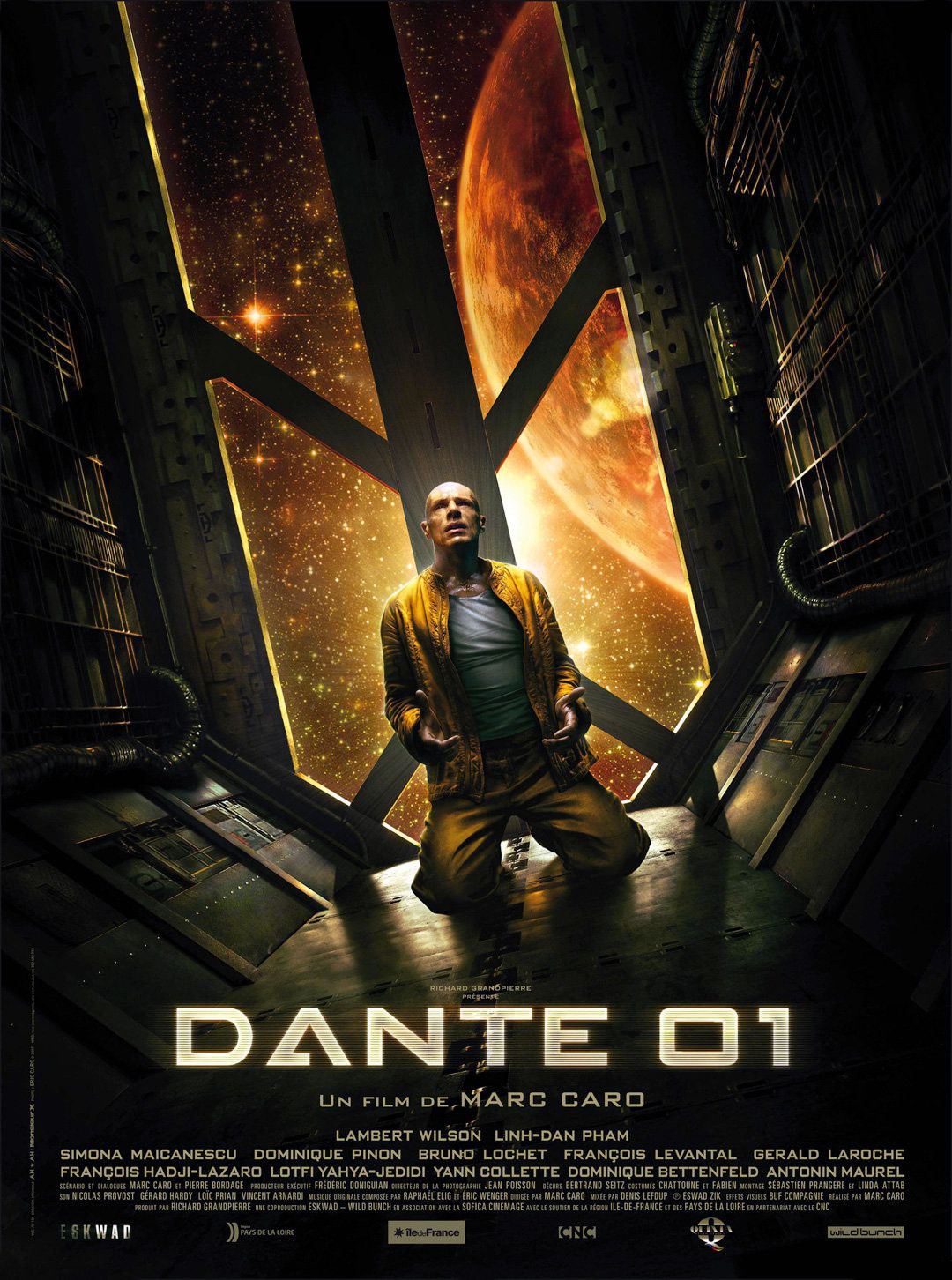Presenting Marc Caro surely isn’t the easiest thing to do. Filmmaker, artistic director, scriptwriter, musician and graphic designer, the man has worked in every sort of projects. From his first independent projects up to Hollywood, he is the incarnation of all the faces of the industry he has been working in since the 70’s with his first short film The Escape co-directed with Jean-Pierre Jeunet. He has then evolved through directing music videos, adverts, and ultimately feature films, for the which he has been a nominee at the BAFTA’s and won many Academy awards in France. His career path, alongside Jean-Pierre Jeunet’s one, can be related to the Brits such as Alan Parker and the Scott brothers (Tony & Ridley) who directed and produced short films before taking on Hollywood. Here is a retrospect of a discussion with one of the greatest visionary French filmmakers, godfather of cinematographic steampunk and master of visual finesse. A prophet in his own land…
When Marc Caro is asked some questions he doesn’t necessarily want to answer, which might give away his great recipe, the bald man hints you towards another subject though his smile and sparkling eyes, or by answering the question in a funny way to keep the mystery. But when it comes back to any opinions concerning cinema today, Marc is your man…
Retro Synthwave: To quickly sum up your life, you were born in Nantes, you then became a graphic designer for magazines such as Metal Hurlant and your encounter with Jean-Pierre Jeunet took place in 1974 at the Annecy Animation Film Festival. You two directed your first short films together before making Delicatessen and The City of The Lost Children which were crazy critic and commercial hits. You also were the artistic director of Alien: Resurrection, Vidocq by Pitoff and even Enter The Void by Gaspar Noé and Blueberry by Jan Kounen. You also directed DANTE 01 starring Lambert Wilson and won several Academy awards. In terms of experiences and work, you don’t have anything left to prove to anyone. What’s next?
Marc Caro: Having nothing left to prove as you rightly said, I’m going to open a candy and toy shop at the Montparnasse Station like Georges Melies did himself!

Marc there was an exhibition of your work with Jean-Pierre Jeunet giving a retrospect of all the films you’ve made. It was in Paris at the Halles Saint-Pierre. Not every filmmaker sees his work exposed to such a large audience. What does this means to you?
What I’ve heard is that people come and go with sparks in their eyes. It’s just great to have such feedbacks!
Talking about your work, one particular commercial film comes in mind: Exercise Of Steel. You made it in the 90’s and it’s a total blast. This couldn’t be made today!
Indeed I’m not sure if the Ministry of Health would authorize such an advert to be on TV today. This film was part of a series of commercial films we made with Jacques Audiard or Gaspar Noé for example.
And musically, your music videos for techno pioneer Laurent Garnier and electronic music godfather Jean-Michel Jarre are two beautiful films. Anything in particular during the making of these films?
The music video for Jarre was made with Jean-Pierre Jeunet. But concerning Laurent Garnier, Laurent proposed me his track ‘Coloured City’ and gave me total creative freedom. And thanks to him, I even had the chance to have lunch with Kevin Saunderson, one of my favorite icons from Detroit!
Still concerning music, you have made some yourself with your band called Parazite. You have even made the soundtrack of your film The Bunker of the Last Gunshots. We only know very little, could you tell us who’s part of this project? Your discography isn’t available anywhere.
Parazite is a noise music band. There’s Antenna on the drums, Joelle on the bass, Spot on the synths and myself on the synthesizers too. We did some gigs from 1978 to 1982 and some soundtracks for films and choreographies.
« we did some gigs from 1978 to 1982 and some soundtracks »
Your film The Bunker of the Last Gunshots is your first ‘long shortfilm’. It’s a transition towards the feature film. It was released approximately during the same period as the first Mad Max. We absolutety think that you could’ve had known an even greater success if the film had been made in English. We also saw the influence of Renoir or Murnau. What were the conditions of the making of this film?
The influence of the German expressionist cinema though Murnau, Wiene or Lang is clearly there and assumed. I bet you’re referring to Renoir’s The Grand Illusion. And I also love Erich Von Stroheim. I think he hasn’t made enough films!
The following question is a bit long indeed but we think it’s important to have your point of view. We interview a while ago Cliff Martinez, the famous composer, who once said ‘Nobody wants to watch a movie about really normal people doing normal things.’ Unfortunately, today we have this impression that indie films often tend towards woozy stories with normal people doing (nearly) normal things, and that the right balance between ruthlessness and familiar contexts is scarce and represented by filmmakers like Nicolas Winding Refn, or Christopher Nolan, or your films with Jean-Pierre. What do you think?
As far as I’m concerned, I claim to be affiliated to Georges Melies as his imaginary world has enriched mine, in the fairy and mythological aspects. Unfortunately this visual type of cinema is more expensive than a more trivial film filming the everyday life. I’ve always struggled to go to the cinema to watch something I have just outside my kitchen window…
« I claim to be affiliated to Georges Melies as his imaginary world has enriched mine »
Between The Bunker of the Last Gunshots and your first feature film: Delicatessen, how was made the transition? Your filmmaking style or the crew or your encounter with the producer Claudie Ossard?
It’s the encounter with Claudie Ossard which has been life-changing. She has definitely believed in our film with Jean-Pierre. She’s a great woman who has a real vision of what is cinema and she takes risks to produce the films she believes in. She should have a great statue on the Champs-Elysées or in Cannes!
Let’s talk about your ‘Marc Caro Touch’. You have amazed a lot of people with it in your films or as an artistic director for Gaspar Noé or Jan Kounen. We have to mention Enter The Void. Your work on the colours, the textures, the contrast… We think you could’ve worked on a film like Drive. How did you develop your style?
I’ve been really lucky to work for filmmaker friends and I love their work. When I’m working with such talented people I’m totally engaged in their vision of the film… I’ve also worked on projects by Jodorowsky which unfortunately never were released.
The technical aspect of Enter The Void is opposed to Alien: Resurrection. Gaspar Noé is always shooting with a light and fluffy camera. How does this influence your work?
He has a very different way of working than I have. But I’m fascinated by his capacity of improvisation.
When a filmmaker asks you to be the artistic director of his film, what is your process?
Everything’s a question of visualization. And my career as a comics illustrator is most of the time very useful.

Your film DANTE 01 is a very visual piece of art, inevitably. What as the genesis of this film? Any anecdote?
DANTE 01 is a bit of a return to the basics for me. Like The Bunker of the Last Gunshots in its time. A few characters, all bald, in a closed environment creating a unity so that it can be a low budget Sci-Fi movie.
Being an visual expert as you are, how do you get along with the director of photography on a film such as DANTE 01?
With Jean Poisson [the DoP of DANTE 01] we’ve been making films together since ages. There’s a great shorthand between us, and his lighting is great!
It’s always hard to avoid the film critics in a filmmaker’s career. Since ages, Luc Besson has always spoke out saying that in cinema there are “the ones who make it and the ones who talk about it”. A statement which is enriched by other filmmakers such as Nicolas Winding Refn saying that nobody should care about them today. What do you think? Do you also think that their legitimacy is limited?
I don’t give much importance to them because nobody can be as critic as I am concerning my own films. I only see the differences between what my vision of the film was and how the film is now.
« nobody can be as critic as I am concerning my own films »
About you work today, how many different hats did you have? Is there one your prefer? Would you accept to work with newbies as much as Gaspar Noé or Jean-Pierre Jeunet?
The heaviest hat is the director’s one obviously. And it’s always easier to work for people you already know, but I make my choices in an instinctive way,if I like the film let’s roll!
To finish this interview let’s talk about music! What are you listening to these days? What are your favorite genres within Electronic Music?
I’m in my oldschool period, I’m into Acid House with Marshall Jefferson, Phuture, Sleezy D and some Detroit Techno with Juan Atkins, Jeff Mills, Derric May…When you think about it, it’s crazy to see what these artists made with instruments like the TB303, TR808 or 909, for a handful of peanuts as no one brought them back then!
A BIG thanks to Marc Caro, Interview by Mikael Schutz, Layout by Space Master


